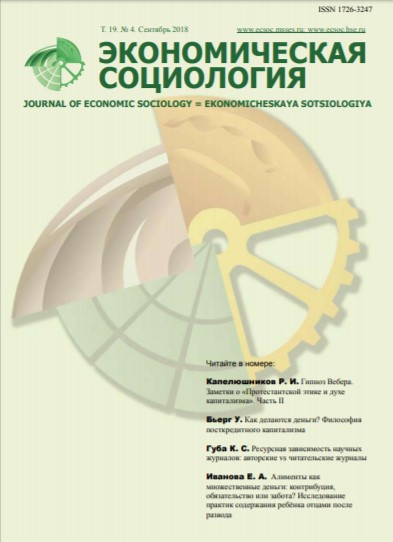Child Support as Multiple Monies: Contribution, Duty, or Care?
Research on Fathers' Practices of Child Maintenance after Divorce
Abstract
In many countries, divorced families are still characterized by insufficient involvement of fathers in the care of their children, and Russia is no exception. The issue is especially prominent when it comes to child support payments. This article discusses the ways that non-residential fathers in Russia pay child support. The analysis is based on 18 interviews with non-residential fathers living in Saint Petersburg and Moscow. The research shows that fathers practice a few distinctive modes of child support payment: alimonies (court-enforced payment), informal monthly payments, gifts, and ad hoc payments. Rather than choosing one option, fathers usually combine a few types of payment. V. Zelizer’s theory of multiple monies has been used to analyze the results. Considering child support payments as multiple monies enables us to decipher multiple social nuances imparted through the father’s method of payment: the performance of masculinity, the fulfilment of social norms, and attitudes towards care. J. Tronto’s concept of “an ethic of care” has been applied in the article in order to distinguish between payments-as-care and payments implying alternate meanings.
Although child support payments are intended for the child, in most cases the mother is, by law, the recipient, bringing the issue of payments into the field of gendered financial power. The understanding of the gendered dimension of child support helps us to analyze fathers’ non-payment. Fathers rationalize their choices by appealing to the ideology of intensive motherhood, which they use for legitimizing justification of (non-)payment.













